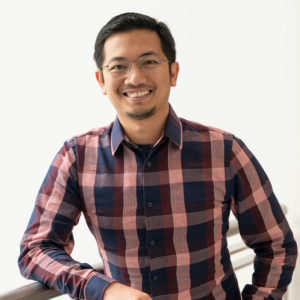
Dr. Francisco Castro is a Computing Innovation Research Fellow at the Steinhardt School of Culture, Education, and Human Development at New York University. Francisco received his Ph.D. in Computer Science (CS) from Worcester Polytechnic Institute, Master’s degree in Information Technology from the Ateneo de Manila University, and a B.S. in CS from the University of the Philippines. Prior to NYU, he was a Postdoctoral Researcher at the Manning College of Information and Computer Science at the University of Massachusetts Amherst. His work focuses on the human-centered design of creative technologies that empower learners in computing and STEM disciplines. You may connect with Francisco by following him on Twitter @DrFrancisCastro.
How did you choose your field of study? Was there a pivotal event that sparked your interest?
Prior to getting my Ph.D., I taught undergraduate computing courses as a university lecturer/instructor, and it fascinated me to see the many ways that different people learn and understand computing. My students weren’t just CS majors — students came from different programs and backgrounds like communication, physics, biology, medicine, theater, sociology, and many others. I became interested in the various ways students envisioned their use of computing and technology in their own domains and practices. This led me to collaborating on interdisciplinary research projects: I became involved in research in fields such as bioinformatics and medical informatics, affective computing, educational technology and games, and augmented human communication and speech recognition. Exploring and experiencing how computing can be embedded in different disciplines, as well as empower people from different practices led me to computing education, human-centered computing, and creative computing.
Describe your research in five words.
Empowering people through creative computing.
Please share a bit more about your research in one to three sentences.
I research and design creative technologies and educational resources — co-designed with educators, students, researchers, and community organizations — that empower people to learn computing, artificial intelligence (AI), ethical design, and STEM skills in engaging and culturally sustaining ways. In my projects, learners engage in AI, computing, and ethics concepts by (a) coding virtual animations over video data that dynamically respond to body movement, (b) using machine learning models for body position classifiers, and (c) exploring the designs of data and algorithms to unpack ethical challenges and impacts of AI on minoritized communities and society, all while producing personally meaningful creative artifacts that connect to their understanding of AI systems. I also explore the use of games and game design as fun and creative avenues for learning science and math in classrooms and informal learning environments.
What do you hope to learn about as you participate in the Emerging Scholar CIRCLS?
I hope to learn from other scholars’ experiences and perspectives on culturally sustaining ways to empower people in their disciplines through computing and share my own insights from my work. I want to develop meaningful connections and collaborate on projects and scholarship that move our fields forward and positively impact education, technology development, and policymaking.
What are your passions outside of work and research? And why are they important to you?
I greatly enjoy nature and exploring the world. I love hiking to the tops of mountains and enjoying the views of forests and the play of colors in the sky at sunrise or sunset. I enjoy snorkeling and seeing the vibrant life and colors of corals and different sea creatures. I like feeling the wind on my face when snowboarding while enjoying the views of snowcapped mountains. I feel energized when I’m in a different country and experiencing and learning about its culture. As a Filipino, food is a gateway to understanding cultures and sharing experiences with people. I’m always fascinated by the different tastes that food from different cultures offer. These are important to me because these experiences help me reconnect with myself, clear my head, connect with others, and enjoy the many sights, tastes, and experiences of the world and the adventures it offers.
If you could offer one piece of advice to your past, pre-graduate school self, what would it be?
Connect with people — listen to their stories and share experiences with others. I’ve learned so much from listening to other people’s stories and experiences. Different people have taken different paths and experienced different things and this vast collection of experiences and knowledge can teach you so many things. Connecting with people and their stories can help you gain clarity about your own work, thoughts, and directions, and you can create meaningful friendships and communities along the way!
